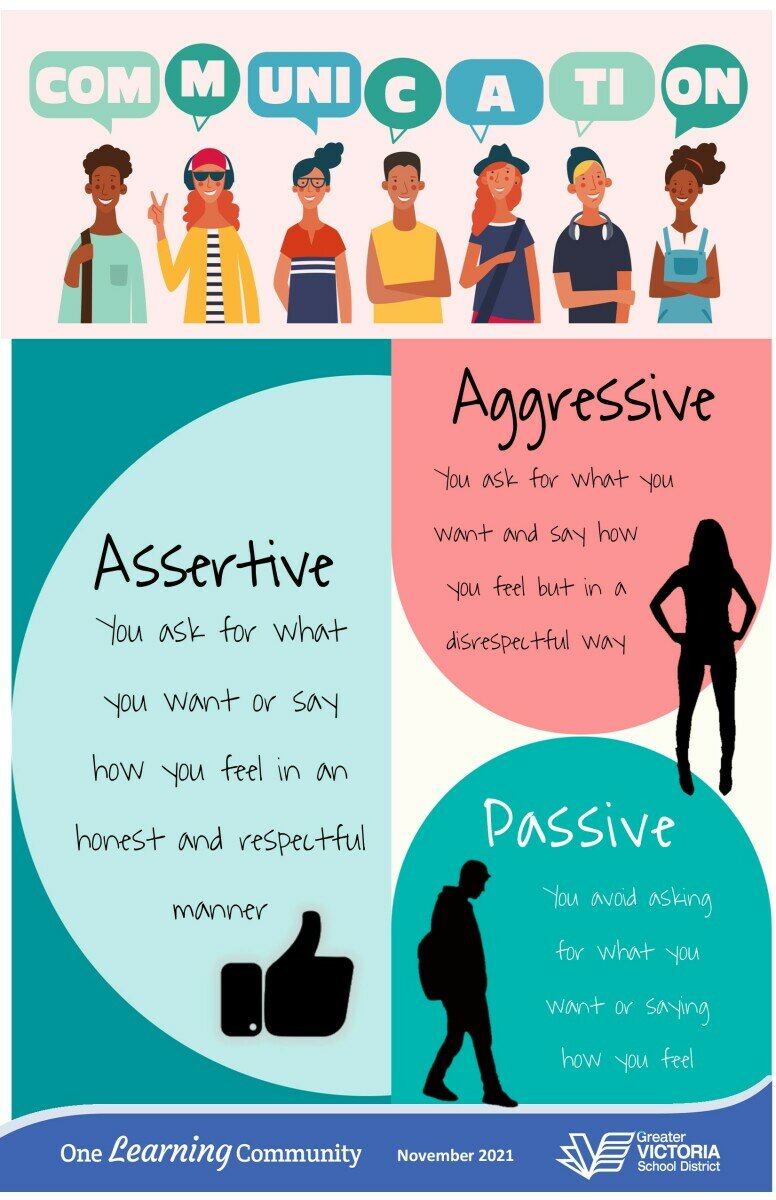|
|
|
|
|
|

| We know the well-known adage tells us “It takes a village to raise a child” yet often we may feel alone with our parenting challenges. The bond with your adolescent may feel shaken at times; but your child needs you as much as ever. As your child grows up, the way you communicate with them will need to change to reflect the new boundaries created by their increasing independence. Effective communication with your teenager can help you both feel happier, more connected and more confident about having difficult conversations.
|
|
|
|
Our hope is that the information shared in this Snapshot will support you in discovering these new and different approaches to communicating effectively with your maturing child.
|
| |
|
|
|
|
|
Culture affects how we perceive the world, how we behave, and how we communicate. To be able to function effectively in a multicultural society, one must have awareness of their own cultural values. These can be so deeply engrained in us that we are often unaware of them.
|
|
|

| This can lead to assumptions that whomever we are communicating with shares the same values as we do. Therefore we must be aware of cultural differences in how we communicate and develop sensitivity and flexibility in adjusting to various cultures.
|
|
|
|
|
|
|
We want our children to come to us during challenges in the same way they share their triumphs with us. Therefore we must stay connected during adolescence when our protective presence matters most. Consider these key strategies to let your children know you are there for them in good times and “have their backs” during hard times.
Use Reassuring Words. Make it clear you want to be there: “I‘ll always be there for you. Trust that you can come to me.” Remain calm during tough moments and offer reassurance that even when challenges arise you‘ll stick around.
|
|
|
Communicate You Feel Better When You‘re Involved. Your children may withhold information out of fear of upsetting you. Explain that you actually feel comforted when you‘re involved: “It makes me feel better to know what‘s going on, regardless of the situation. Just knowing what you‘re dealing with allows me to figure out ways to be most supportive of you.”
|

|
|
|

|
Be a Lighthouse Parent. Lighthouse parents are stable guides. They express love and offer security through rules and monitoring. Children and adolescents parented in this way are more likely to choose to tell their parents what is going on in their lives.
Get Support. Ensure you have strategies to manage your own stress. Your children will worry less about you when they know you are committed to taking care of yourself.
|
|
|
Praise Effectively. Children thrive on attention from their parents. However, praise about impressive performances can prevent them from coming to you when they need you as they may fear disappointing you. Consider shifting your response from “I‘m proud of you” to “Thank you for always sharing what‘s going on in your life” This celebrates the power of your relationship, rather than their performance. |
Discipline Wisely. When young people are consistently punished after disclosing troubling information, they‘ll eventually stop sharing. Discipline is about teaching rather than control or punishment. Consider this from a 14-year-old: “If you continuously judge and punish me for sharing aspects of my life with you, don‘t be surprised when I stop sharing.”
|
|
|
|
|
|
|
|
|
|
What happens when we include our children in the conversations they have a stake in?
|
| |
|
|
|
|
|
Every conversation is an opportunity for parents to connect with their child. Making a plan for incorporating new and different approaches to communication with your teen starts by taking into consideration where, when and how you approach important conversations. Below is a summary of key conversation tips.
|
|
|

|
Talk Early. Talk Often. Begin talking openly early and often — perhaps even earlier than you might think. This helps developing brains grow and create stronger attachments and healthier relationships early on. Make chats with them the norm. By the time they hit adolescence, you’ll have learned what works for them such as when they are most receptive and locations and places for important conversations.
|
|
|
Try to be Calm. If we can’t be calm we can’t expect our teens to be either. If we yell or overreact, our teens may block the conversation completely. Listen but don’t react unless safety is at risk. Take a time out and chill. Remain low-key.
|
|
|

|
Know yourself. If you already have an often-voiced opinion about a topic, acknowledge that. Ask yourself. “Are you the best person to have this conversation now?” When our teens know exactly what we’re going to say, and if there’s no room for flexibility, they likely won’t engage.
|
|
|
|
Be Mindful of the Tone and Choice of Words. Try using an I Statement to explain how you feel. For example, “I feel worried when you are late because I imagine something terrible has happened to you.” Your teen will be less defensive if they understand why you’re feeling a certain way.
|
Listen and Empathize. It’s more effective to listen than to constantly offer suggestions and solutions. Sometimes listening requires practice. For the most open and honest communication let teens do most of the talking. Then, remind them that you understand things aren’t always easy.
|
Talk One-On-One or Side by Side. Public conversations are on the “what to avoid” list. Some teens prefer talking about certain topics when not looking at you directly in the eyes. Try talking during activities like folding laundry, cooking, or driving in the car. These conversations are best kept to one-on-one.
|
| |
|
 |
Choose a Preferred Talking Environment. When do your teens best connect with you and most comfortably share? Do they talk mostly in places with no distractions? Do they mellow out with music or TV in the background? Know what type of supportive environment is best and most comfortable.
|
|
|
Be there. Be present for your teens when talking. Ignore smartphones, computers and other distractions. Give them your undivided attention. Let them know they are center in your spotlight.
Use Teachable Moments. Look for opportunities that arise. Notice things in movies, books, your day to day world. These offer great conversation starters where values can be clarified and discussed in a neutral setting. |
Ask Subtle Questions. Try less direct questions as conversation starters. “Who were some of your friends at the party?” is going to be more effective than, “Were there drugs at the party?” By asking about seemingly lesser things and using open-ended questions, you‘ll learn more. Try “What did you think about ______?” or other opinion-eliciting questions that can lead to more open communication.
|
|
|
|

|
Show Vulnerability. Letting your teens know you‘ve made mistakes can build trust.
Continue Conversations into the Future. Think about talking with teens as an ongoing conversation. Some of the harder chats you have together may require breaking them up into segments over time. Consider sending a positive text that keeps the conversation going. “It meant a lot that you shared with me. I‘m here whenever you want to talk.”
|
| |
|
|
|
|
|
|

| Several copies of this poster have been delivered to all middle schools for student learning.
One of the most important skills any of us can have is good communication. Our ability to communicate impacts our family, friends, and other close relationships. Good communication is one of the most requested skills by employers.
This poster briefly defines the three main communication styles: passive, aggressive and assertive and gives a thumbs up for the assertive style which is the most preferred method of communication.
|
| |
|
|
|
|
|
Parent Survey
Enhancing Substance Use Prevention in BC Schools Survey: In Phase 2 of an ongoing engagement initiative, the Province is seeking input on how to help meet the challenge of youth substance use and its associated harms. We invite parents and caregivers to complete this short survey by November 19.

|
|
|

|
Do you enjoy the monthly Snapshots?
Do you have suggestions on how to improve the Snapshots?
Do you have ideas for future topics?
Let us know!
We would love to hear from you!

|
|
|
|
|
|
|
|
|
|
|
|
|
|
|